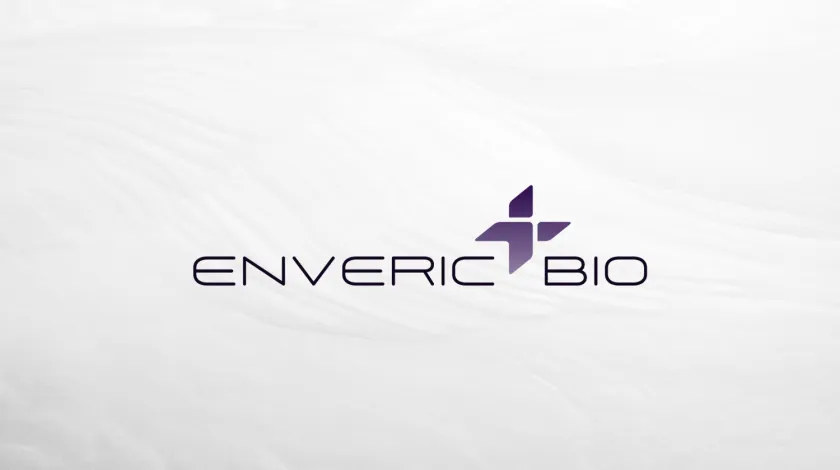
Enveric Biosciences’ Lead Candidate EB-003 Shows Promising Preclinical Efficacy in PTSD Model, Signaling a Potential Breakthrough in Neuroplasticity-Based Psychiatric Treatment
Enveric Biosciences (NASDAQ: ENVB), a pioneering biotechnology company advancing a new class of neuroplastogenic small molecules, has announced promising new preclinical data for its lead candidate EB-003 in a rodent model of post-traumatic stress disorder (PTSD). The data, generated in a well-established exposure-based therapeutic model, highlights EB-003’s potential to become a transformative therapeutic for PTSD, a condition still lacking highly effective and fast-acting treatment options.
According to Enveric’s announcement, the company evaluated EB-003 in a preclinical model using fear-conditioned mice—an established paradigm for studying trauma-related disorders. This Pavlovian-style setup involves pairing a mild electric shock with a specific environmental context, training the animals to associate the context with the aversive stimulus. Upon re-exposure to the context, the mice exhibit “freezing” behavior, an instinctive and quantifiable sign of trauma memory recall and fear.
In this study, a single oral dose of EB-003 significantly reduced this context-induced freezing behavior when measured one hour after administration, achieving statistical significance (p < 0.05). This finding indicates that EB-003 facilitated the extinction of fear memory—a hallmark of effective PTSD treatment. Notably, the effect size and therapeutic impact of EB-003 mirrored that of MDMA (3,4-methylenedioxymethamphetamine), which served as a positive control in the experiment.
MDMA, though still unapproved by the U.S. Food and Drug Administration (FDA), has shown clinical benefit in treating PTSD during advanced-stage clinical trials and has been a cornerstone of recent psychedelic-assisted psychotherapy research. However, its classification as a Schedule I controlled substance, along with concerns around safety, regulatory hurdles, and potential for misuse, has limited its accessibility. By contrast, Enveric’s EB-003 is a next-generation neuroplastogen that may deliver similar neuropsychiatric benefits without the hallucinogenic effects commonly associated with classic psychedelics.

A Paradigm Shift for PTSD Therapies
Current FDA-approved treatment options for PTSD are limited, with only two serotonin reuptake inhibitors (SSRIs)—paroxetine and sertraline—earning regulatory approval. These therapies typically take several weeks to deliver noticeable symptom improvement and are often associated with limited remission rates. Studies suggest that fewer than 30% of patients achieve full remission with SSRI treatment, underscoring the urgent need for novel mechanisms of action that can produce faster and more durable relief.
Dr. Joseph Tucker, Ph.D., CEO and Director of Enveric Biosciences, expressed optimism over the recent findings and the company’s broader mission. “Only a few medications have been approved by the FDA for the treatment of PTSD, including the SSRIs paroxetine and sertraline,” Dr. Tucker stated. “Only 20% to 30% of PTSD patients experience full remission with these drugs and it takes two to three weeks of SSRI administration before clinical and neuronal benefits become apparent. Clearly, there is enormous unmet need in PTSD, which has yet to be addressed with meaningful innovation.”
By contrast, EB-003 produced measurable therapeutic effects within an hour of dosing in preclinical trials. Such a rapid onset of action could represent a major advantage for patients suffering from PTSD, who often face acute symptoms including flashbacks, panic attacks, intrusive thoughts, and debilitating anxiety. For many, the slow response times of current treatments can mean prolonged suffering and higher risk of co-occurring issues such as depression, substance abuse, and suicidality.
Targeting the Neurobiology of PTSD
PTSD is widely understood to be rooted in dysregulated fear processing and memory reconsolidation—processes in which the hippocampus plays a central role. Mounting evidence suggests that impaired hippocampal neuroplasticity may be a key driver of PTSD symptoms. Neuroplasticity—the brain’s ability to reorganize and form new connections—is essential for extinguishing traumatic memories and forming adaptive coping mechanisms.
“Research has implicated impaired hippocampal neuroplasticity as key underlying features of patients struggling with PTSD,” said Dr. Tucker. “We are very encouraged that a single dose of our lead neuroplastogen, EB-003, facilitated rapid fear extinction in mice.”
EB-003 is designed to promote neuroplasticity, specifically in brain regions such as the hippocampus and prefrontal cortex, without triggering hallucinogenic experiences that often accompany classical psychedelics like psilocybin or LSD. This profile potentially offers a more scalable and regulatory-friendly pathway for development, especially as the industry and regulatory authorities increasingly weigh the long-term safety and practicality of psychedelic-assisted psychotherapy.
Enveric’s proprietary compound is part of a broader class of neuroplastogens being developed for psychiatric and neurological disorders. These agents aim to enhance synaptic growth, strengthen neural circuitry, and accelerate functional recovery from psychological trauma, depression, and other mood disorders. If successful, EB-003 could pave the way for a new class of non-hallucinogenic therapeutics that work quickly and effectively by targeting the brain’s inherent ability to adapt and heal.
Third-Party Validation and Future Clinical Strategy
The PTSD model used to evaluate EB-003 was conducted by a third-party laboratory specializing in translational neuroscience. The Pavlovian fear conditioning and extinction model is considered a gold-standard in preclinical PTSD research and has been used extensively to validate potential therapeutic candidates prior to advancing them into clinical development. Enveric did not specify the name of the lab but emphasized the rigor and translatability of the findings.
The company plans to use these results as a foundation for advancing EB-003 into further preclinical toxicology studies, with the goal of filing an Investigational New Drug (IND) application with the FDA in the near future. The announcement did not disclose a specific timeline for first-in-human trials, but the consistency of EB-003’s results with MDMA’s known effects bodes well for its therapeutic potential in clinical settings.
A Market with Substantial Unmet Need
The market opportunity for effective PTSD treatments is significant and growing. According to the U.S. Department of Veterans Affairs, about 6% of the U.S. population will experience PTSD at some point in their lives. Among certain populations, such as military veterans, survivors of abuse, and first responders, the incidence is even higher. The COVID-19 pandemic and rising societal awareness around trauma and mental health have only intensified the need for innovative solutions.
Enveric’s focus on neuroplastogenic therapy is not only timely but strategically positioned to take advantage of a shifting landscape in psychiatric care. With leading academic institutions, industry stakeholders, and policymakers increasingly supportive of psychedelic-inspired treatments, non-hallucinogenic neuroplastogens like EB-003 could gain traction as safer, more accessible options for mainstream adoption.
With the unveiling of positive preclinical data for EB-003, Enveric Biosciences has taken a meaningful step toward addressing one of the most pressing challenges in mental health: providing effective, rapid-acting treatment for PTSD. The company’s strategy to harness the therapeutic promise of neuroplasticity, while avoiding the pitfalls of traditional psychedelics, marks a potentially disruptive shift in psychiatric drug development.
As Enveric prepares for further preclinical validation and regulatory engagement, EB-003 stands out as a compelling candidate in the evolving field of neuroplastic therapeutics. If future studies confirm its efficacy and safety, the drug could offer a lifeline to millions suffering from PTSD and related trauma-based disorders—delivering not only relief but also the promise of genuine healing.
About Enveric Biosciences
Enveric Biosciences (NASDAQ: ENVB) is a biotechnology company dedicated to the development of novel neuroplastogenic small-molecule therapeutics for the treatment of psychiatric and neurological disorders. Leveraging its unique discovery and development Psybrary™ platform, which houses proprietary information on the use and development of existing and novel molecules for specific mental health indications, Enveric seeks to develop a robust intellectual property portfolio of novel drug candidates.
Enveric’s lead molecule, EB-003, is a potential first-in-class neuroplastogen designed to promote neuroplasticity, without inducing hallucinations, in patients suffering from difficult-to-address mental health disorders. Enveric is focused on advancing EB-003 towards clinical trials for the treatment of neuropsychiatric disorders while out-licensing other novel, patented Psybrary™ platform drug candidates to third-party licensees advancing non-competitive market strategies for patient care. Enveric is headquartered in Naples, FL with offices in Cambridge, MA and Calgary, AB Canada. For more information, please visit www.enveric.com.





